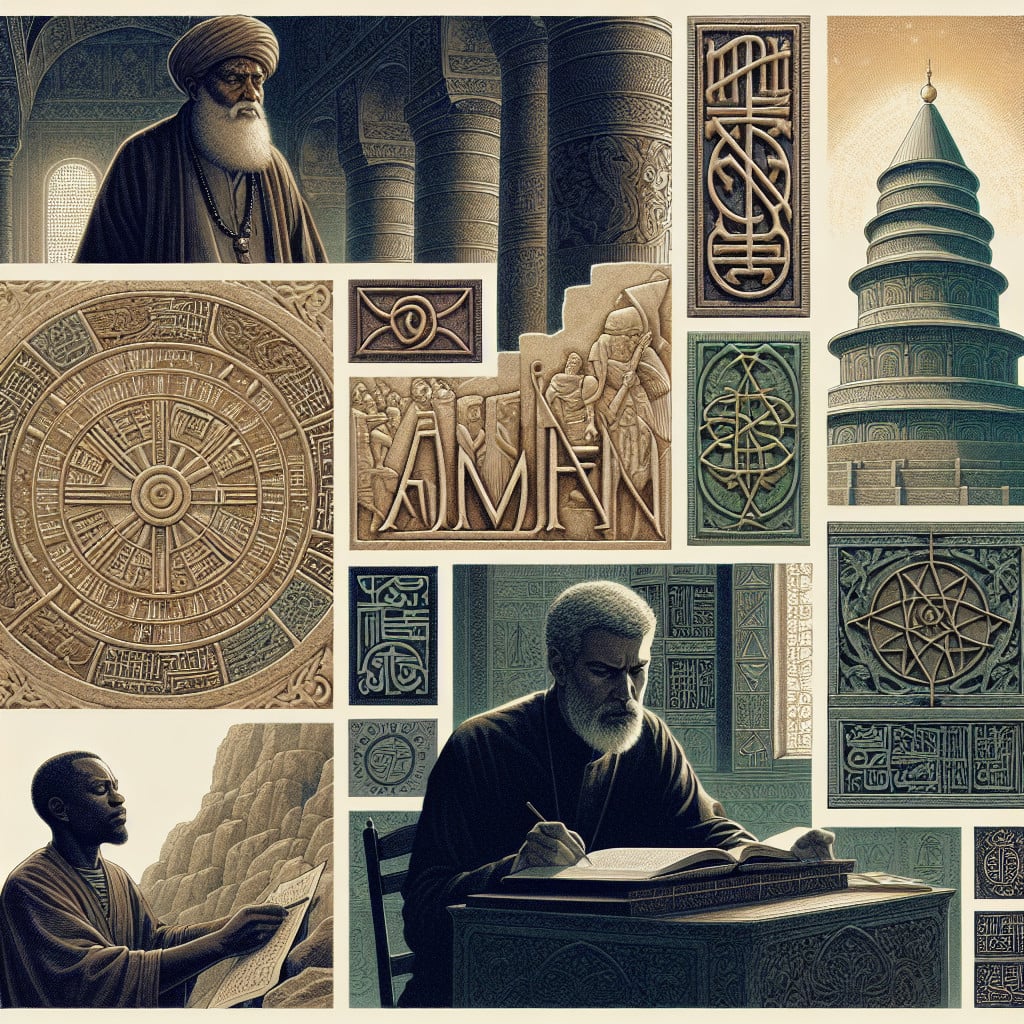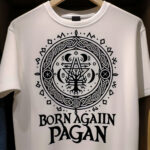The word “Amen” is heard on a daily basis in churches, synagogues, mosques, and other places of worship around the world. It is often used to express agreement, assurance, and completion of prayers. But few people are aware of the pagan origin of the word “Amen,” which is rooted in ancient Egyptian religion. This article will explore the history of the word “Amen” and its journey from a pagan origin to its current status as an integral part of religious expression.
Amen is a word that has been used for centuries in religious ceremonies around the world. It is a common ending to prayers and songs and is often used to signify agreement or approval. While it is a common word today, its origin can be traced back to ancient pagan religions. In this article, we will explore the pagan origin of amen and how it has been used in different religions and cultures throughout history.
The Origin of Amen
The origin of the word amen is uncertain, but it is believed to have originated in ancient Egypt. In ancient Egyptian religion, Amen-Ra was the god of the sun and the chief deity of the pantheon. The ancient Egyptians believed that Amen-Ra was the creator of the universe, the ruler of all life, and the source of all power. As such, Amen-Ra was often invoked in prayers and blessings.
The word amen is derived from the Egyptian word “Imn” which means “hidden” or “concealed”. This is likely because Amen-Ra was believed to be a hidden and mysterious deity. Over time, the word amen came to be used as a way to affirm and show agreement with what was being said or done.
The Spread of Amen in Religion
The spread of amen can be traced back to the ancient Greeks and Romans. In ancient Greek religion, amen was used in prayers and blessings to the gods. The Romans adopted the use of amen and it eventually spread to other parts of the Mediterranean. By the time of Jesus, amen was already a common word in religious ceremonies.
In Christianity, amen is used to signify agreement with the words of a prayer or blessing. It is also used as a response to a sermon or other religious teaching. In Judaism, amen is used to signify agreement with a blessing or prayer. In Islam, amen is used to signify agreement with an invocation or supplication. In some religions, such as Hinduism, amen is used to signify agreement with a mantra or chant.
Amen in Other Cultures
The use of amen has also spread to other cultures around the world. In many African cultures, amen is used to signify agreement with a statement or to express approval. In some Native American cultures, amen is used to signify agreement with a blessing or prayer. In some Asian cultures, amen is used as a way to express agreement or approval.
The Meaning of Amen
The word amen is derived from the ancient Egyptian word “Imn” which means “hidden” or “concealed”. This is likely because Amen-Ra was believed to be a hidden and mysterious deity. Over time, the word amen has come to symbolize agreement and approval. It is used in religious ceremonies around the world to signify agreement with a blessing, prayer, or teaching.
Conclusion
Amen is a word with a long and rich history. It has its roots in ancient Egyptian religion and has since spread to many other cultures and religions around the world. Today, amen is used to signify agreement and approval in religious ceremonies. No matter what religion it is used in, the word amen always carries with it a deep spiritual significance.
In conclusion, it is clear that the word ‘Amen’ has a long and varied history, reaching back to ancient pagan cultures. It is a testament to the power of language and the ability of words to transcend culture and time. It is important to note that the use of ‘Amen’ has not been limited to religious contexts, but has been used to express agreement and affirmation in many different contexts. Furthermore, the word has been used in various forms throughout the world, demonstrating its global reach and influence. Ultimately, ‘Amen’ is a powerful word that has stood the test of time.





